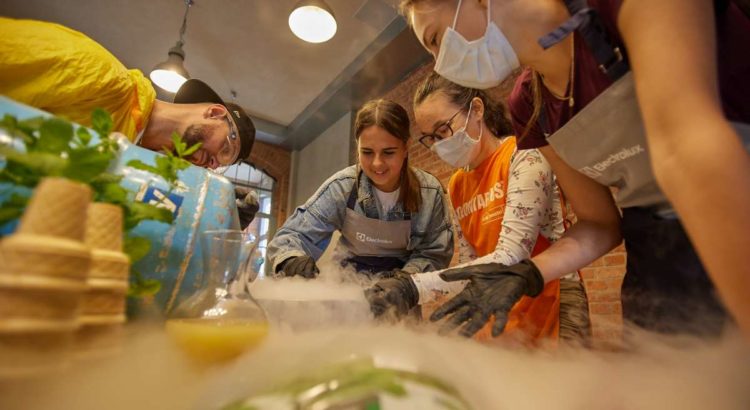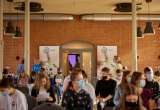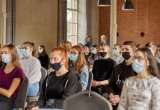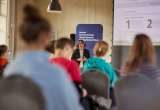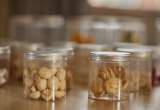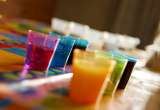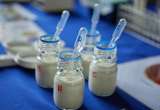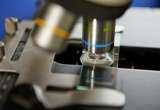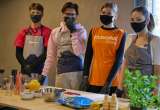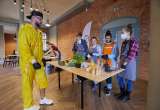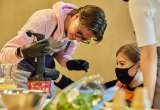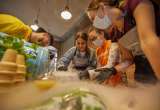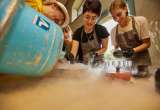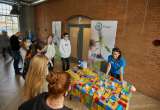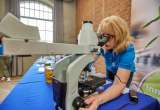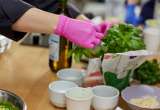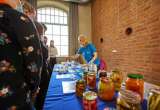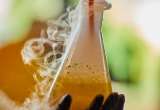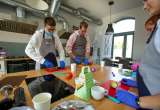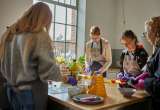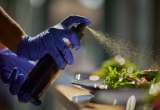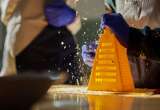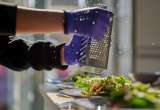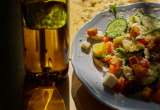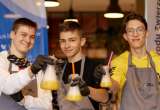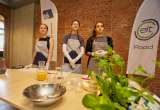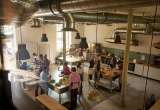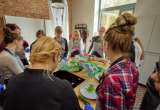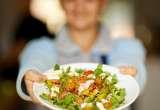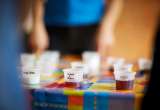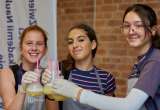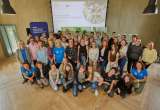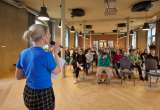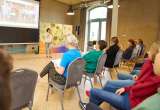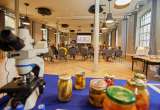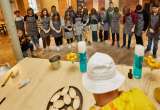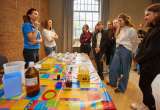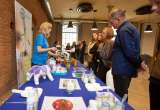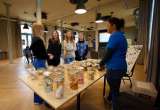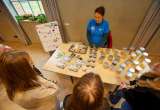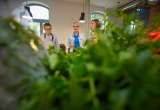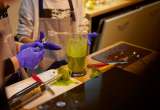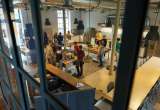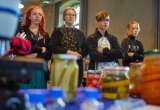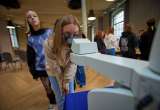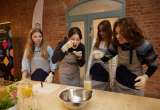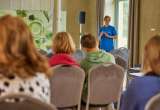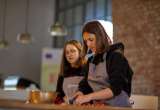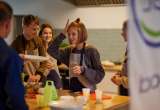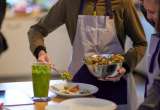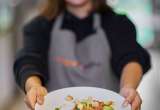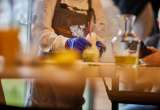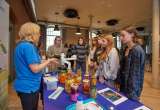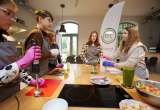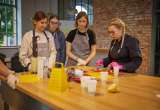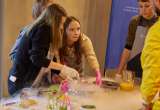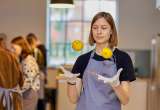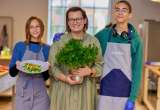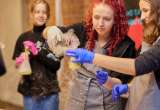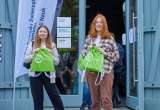Two exciting days of workshops on rational food management waited for students participating in the EIT Food Science Class project. Over 100 Polish students took part in several activities that brought them closer to the issues of food waste and encouraged them to apply a zero waste attitude daily.
On September 15-16, we invited students to the Social Forge of the Food Bank in Olsztyn. On the first day, the workshops were attended by high school students from the Maria and George Dietrich XII High School in Olsztyn, while on the second, by students of the Maria Zientara-Malewska Primary School in Dywity. The organizers (Institute of Animal Reproduction and Food Research PAS, Food Bank in Olsztyn) prepared three thematic sections: culinary workshops, experiments and demonstrations, molecular cuisine workshops.
During the workshop „How to cook and not waste? Zero waste – kitchen edition”, students prepared nutritious meals and learned to look at food as a limited resource, which should be treated mindfully and with respect. How to store food, what is the most wasted product in our kitchen, and what can we do to avoid it? Our students looked for answers to these and many other questions under the supervision of professional chefs, Kinga Syczewska and Maja Świtkowska.
In the second section, prepared by the Institute of Animal Reproduction and Food Research of the Polish Academy of Sciences, a lecture by Dr. Aleksandra Kocot entitled „Bacterial biofilm and food losses and safety” were waiting for the students. The students learned what is a bacterial biofilm, if and what bacteria are desired in food production and processing, what are the consequences of the presence of biofilm in the food industry, and what is food safety in general. After a short introduction, the students had the opportunity to play the role of young scientists and conduct simple experiments on their own. Dorota Napiórkowska presented space food, explained what the freeze-drying method is, showed examples of freeze-dried food, and explained differences between dried and freeze-dried products. The show was supplemented by information on the water content in popular food. Marzena Lenkiewicz invited participants to join “fermentation in progress”, where they learned about the process of lactic fermentation, found answers on why fermentation is a natural method of food preservation, and what exactly happens in the jar during pickling. Students made preparations of pickled cucumber and cabbage juice on their own and examined the microorganisms responsible for fermentation under a professional microscope. They also examined the quality of milk destined for the production of fermented dairy products. Kamila Penkacik introduced the students to sugar and its popular substitutes, incl. stevia, molasses, rice syrup, and many more. Participants could test the sensory properties of these products, such as colour, aroma and density. The demonstration was complemented by the study of bioactive compounds in popular beverages such as juice, tea and soda.
The last thematic section was demonstrations and workshops of molecular cuisine, where students learned how to create healthy alternatives to popular functional drinks, e.g. energy drinks, as well as prepare the base for ice cream using fruit and vegetables. The students learned that freezing is one of the basic methods of food preservation, and under the supervision of the instructors, Szymon Fiedorowicz and Kamil Byliński, turned their fruit and vegetable mixes into delicious and healthy ice cream, using liquid nitrogen.
The #FoodScienceClass project is powered by EIT Food which works towards a sustainable, healthy and trustworthy food system. Partners: TECHNION (Israel), IARFR PAS (Poland), Food Bank in Olsztyn (Poland), EUFIC (Belgium), VTT (Finland) and Rikolto (Belgium).

